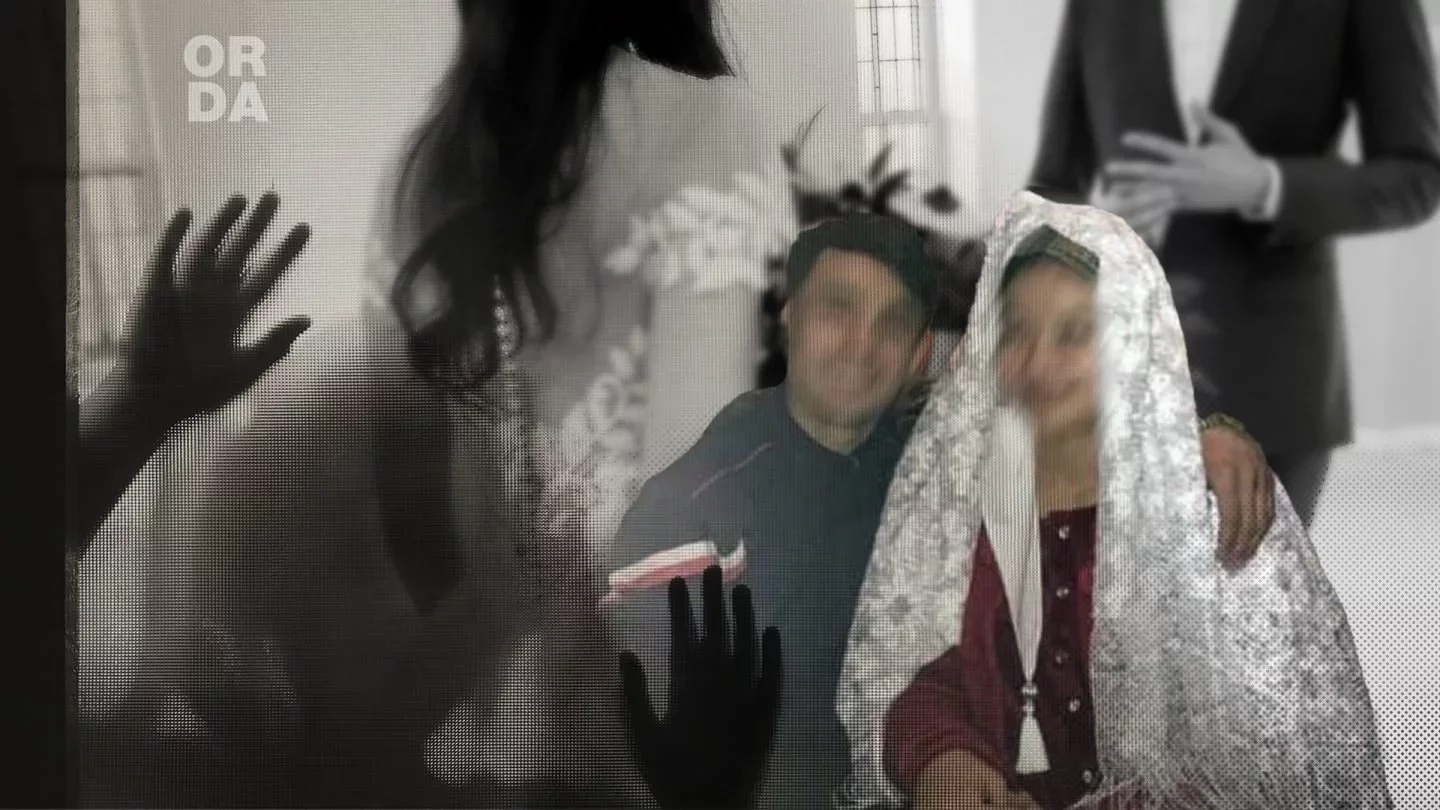Hundreds Are in Captivity Right Now - Expert of National Commission for Women's Affairs on Bride Kidnappings
 coverphotocollage Orda.kz
coverphotocollage Orda.kz
In Kazakhstan, “Alyp Qashu” is the practice of bride kidnapping and forced marriage. It is common in the Caucasus, Kyrgyzstan, Kazakhstan, Ethiopia and other countries where similar customs have been preserved.
This is considered a crime in most countries. It is, however, not specifically criminalized in in Kazakhstan yet. Nazim Zhangazinova, a member of the National Commission for Women's Affairs and Family and Demographic Policy under the President, spoke about this with Orda.kz.
Kazakhstan's society has been discussing “Alyp Qashu”. The topic has also become so controversial that it has already become a way of distinguishing the so-called Kazakh “conservatives” from their “liberal” counterparts.
An Orda journalist spoke about this with a member of the National Commission for Women, Family and Demographic Policy under the President, Nazim Zhangazinova. Incidentally, she is also an active publicist, constantly raising issues of gender inequality in her posts and statements.
I want to draw a clear line between tradition and crime. Tradition in our modern understanding is an “imitation” of the abduction of a bride, which takes place with mutual consent. It occurs in cases where, for example, the groom cannot pay for the wedding. In other words, this is just a ritual. But the forcible abduction of a girl is another matter. I think it’s time for our society to stop looking at such phenomena leniently and start calling a spade a spade. Kidnapping is a terrible, a criminal offense
Statistics
 Collage Orda.kz
Collage Orda.kzTo what extent is this tradition still relevant? Many Kazakhstanis are indeed convinced that “Alyp Qashu” is a relic of the past.
Nazim Zhangazinova believes this is a naive and toxic delusion, which seems to devalue a genuine issue. Because of it, hundreds, and possibly thousands of women in Kazakhstan live in captivity of other people’s families.
I will only cite official data from the office of the Commissioner for Human Rights in Kazakhstan, according to which from 2019 to 2023, 214 criminal cases related to bride kidnapping were opened in our country. However, we cannot say how many such crimes there actually are, since, of course, most of them never go so far as to call the police.
The Commissioner for Women's Affairs also recalled that there is no article in the current legislation that would prevent bride theft. There is only article 125 of the Criminal Code generally covering kidnappings in the country. As the expert said, in order to derive the announced statistics, the ombudsman’s office “manually” separated the relevant cases.
People who dispute the existence of bride kidnappings live in their rosy information bubbles. Meanwhile, our girls have terrible psychological trauma, and then are left to live with a person (they - Ed.) do not love in someone else’s family. Hundreds of Kazakh women are living in captivity right now. I think many know the stories of their acquaintances and relatives in whose families similar things have also happened.
Aunt Kidnapped at 19 Years
 Nazim Zhangazinova. Photo: weproject.media
Nazim Zhangazinova. Photo: weproject.mediaNazim Zhangazinova also spoke about how people she knows have faced “Alyp Qashu” and what “kidnapping in the name of love” ultimately led to.
This situation happened with my own aunt. She was kidnapped when she was 19 years old. All her life she was active, bright, interesting. She did well in school, then in university. Then one day in her native village she is kidnapped by a young man, whom she did not love and she was not dating. As was expected in those days, relatives pressured (her - Ed.) with words about “Uyat” (shame - Ed.) and a shadow on the reputation of the entire family. The aunt, not finding support, being practically a child, remained in a stranger's family.
The woman is now 58 years old. According to Zhangazinova, she still says that she is unhappy. After all, she has been in a loveless and joyless marriage for almost 30 years.
"Dirty"
Does hushing up this problem in modern society remain pertinent? Zhangazinova shared another story that she recently heard from a manicurist she goes to. She is now 26 years old, but was only 17 when kidnapped. The girl had only enrolled in university and started talking with a young man. But after some time, he became unreasonably jealous. She stopped speaking to him. The girl was eventually kidnapped.
Once after school, an acquaintance of mine was standing at a bus stop, and two strangers grabbed her, put a bag over her head and pushed her into a car. The young woman screamed, but the kidnappers turned up the music to full volume, not allowing her to attract the attention of others. At that time, she thought it was a kidnapping for ransom or even murder. To say she was scared is an understatement.
Only when she was at the young man's house did the girl realize what was happening. They put a scarf on her and an elderly woman present lay down on the floor in front of her. According to tradition, stepping over an adult is a sign of disrespect. The young man eventually returned.
The same young man returned and raped her. The women began to convince her that she was now “dirty”, and returning home would be shameful. She was even forced to write an acknowledgement that she came to this house of her own free will. The story also did not end well. The young woman stayed in this family with her kidnapper and is obviously not living out the best version of her fate.
According to Nazim Zhangazinova, all these women are victims. Society for some reason perceives them as a thing that can be stolen and forced to live in another home.
These are captives in the chains of their husbands and our society, which turns a blind eye to this problem. Despite all the horror, this is not even the most terrible scenario, since from the news we hear about facts when young women cannot take it and either immediately after the abduction, or years later, they commit suicide.
Who's to Blame?
Victim blaming is unfortunately present in Kazakhstan's modern society. Indeed, some Kaznet users voiced their criticism that the blogger “Nagimusha,” who was kidnapped as a joke by Almaty pranksters, did not resist.
In the comments they condemned her for not being active enough and not stepping over a similar “apashka” (Kazakh word sometimes used for grandma/elderly woman) that had fallen on a threshold. But can you really blame her? She could have been killed there, she didn’t know it was a joke. Besides, the girls in "In such a situation, they don’t understand what’s happening to them at all. Another thing is the very appearance of this prank. After all, pop culture is only a reflection of reality. The fact that these guys decided to play it out in this way is a confirmation of the ordinariness of such a situation.
According to the women's rights expert, even an “apashka” falling on the threshold is a real and often used tactic to manipulate victims. It is also so widespread that it has already become a part of pop-culture and is now used in such pranks.
While we are sitting at the dastarkhan (table at celebratory events - Ed.) with the kidnappers, we wash our hands with the tears of hundreds of girls.
But what then needs to be changed to solve the problem of “Alyp Qashu”? According to the member of the National Commission for Women's Affairs, first of all, the government needs to introduce a separate article in the Criminal Code - “Kidnapping for the purpose of further marriage.” Incidentally, the same proposal was previously voiced by Human Rights Ombudsman, Artur Lastaev.
Under the current article, kidnapping has a prison sentence of four to seven years. And if you act in a group of people, as is usually the case, the term increases to 12 years. By accomplices, I mean everyone who is involved - both friends and relatives who help hold a young woman against her will.
However, as Nazim Zhangazinova said, this article of the Criminal Code has one peculiarity: if a person voluntarily releases the victim, they are released from liability.
This is normal in cases when you are afraid that the kidnapper will kill the victim. But we all know that for “Alyp Qashu” they do not kill. According to human rights activists, because of this clause, most cases do not reach the court. The young woman is released and this end of story.
The women's rights expert is convinced that even if a girl is able to return home, her kidnapper should bear the harshest punishment, so neither he nor his accomplices will ever do this again. According to Zhangazinova, there should be a separate article for this. This would also facilitate tracking the statistics of such offenses.
I would like to note that Kazakhstan is not the only country that, unfortunately, is faced with this social problem. But our neighbors in the region are already successfully fighting it. Kidnapping of women for marriage is criminalized in Kyrgyzstan, Turkmenistan and Uzbekistan. In addition, I think it is important to change not only the punishment for these offenses, but also their very perception in society. As in the case of domestic violence, our society prefers not to “interfere”, not to breach the walls of other people’s houses, considering this a private family matter. But this is not so.
Nazim Zhangazinova believes that, just as they often say about corruption, men and their families who participate in “Alyp Qashu” should be outcasts.
While we calmly go to visit such houses, drink tea at dastarkhan with the kidnappers, take kese (cup for drinking - Ed.) from the hands of a woman kidnapped against her will, we wash our hands with the tears of hundreds of young women.
Dina Tansari, founder of the NeMolchi Foundation, has previously told Orda.kz that a separate criminal article for “bride kidnapping” could aggravate violence against women. According to the human rights activist, there is no need to emphasize the existence of a custom with a specific law. Tradition must become a thing of the past. Tansari says Kazakhstan does not have the same level of bride kidnapping as neighboring Kyrgyzstan.
Original Author: Aset Smagulov
DISCLAIMER: This is a translated piece. The content is the same, the text has been modified. Please refer to the original piece in Russian for accuracy.
Latest news
- Timur Kulibayev vs. New Kazakhstan: Oligarch Defends His Assets
- MP supported Imam's Statements About Kazakh Traditions
- Altyn Adam: How Filmmakers Quarreled Over Cartoon About Scythian Warrior
- "No Chance": Russian Deserters' Stories in Kazakhstan
- National Fund Earns As Much As It Spends
- What is Going on with FPL Head's Recent Appointment?
- Stati Case: Victory for Kazakhstan?
- Qataris to Spend $3.5 Billion on Construction of Plants in Kashagan
- Oil Quotas: a Blessing or a Curse for Kazakhstan?
- Plant in Kazakhstan: Swiss Investor Purchased, Legal Battle Follows
- Situation with Russian Securities in Kazakhstan Explained
- Uranium Mining Tax in Kazakhstan to Change Starting in 2025
- Chinese Oil Giant to Build Wind Farm in Kazakhstan
- Expert Explains Toqayev Greeting Xi Jinping in Particular Way
- Scandal around "Aria-Zhana Astana", Controlled by Satybaldy, Not Subsiding
- SCO Summit in Astana: What to Expect?
- Who Was Oppositionist Aidos Sadykov?
- KNB Agent Orik VS Financial Police Agent Sanych
- Nazarbayev's Relatives on Trial: Systemic Purge or Political Games?
- Fire in Greece: Luxury Yacht, Kazakhstani Oligarchs' Vacation Scandal

